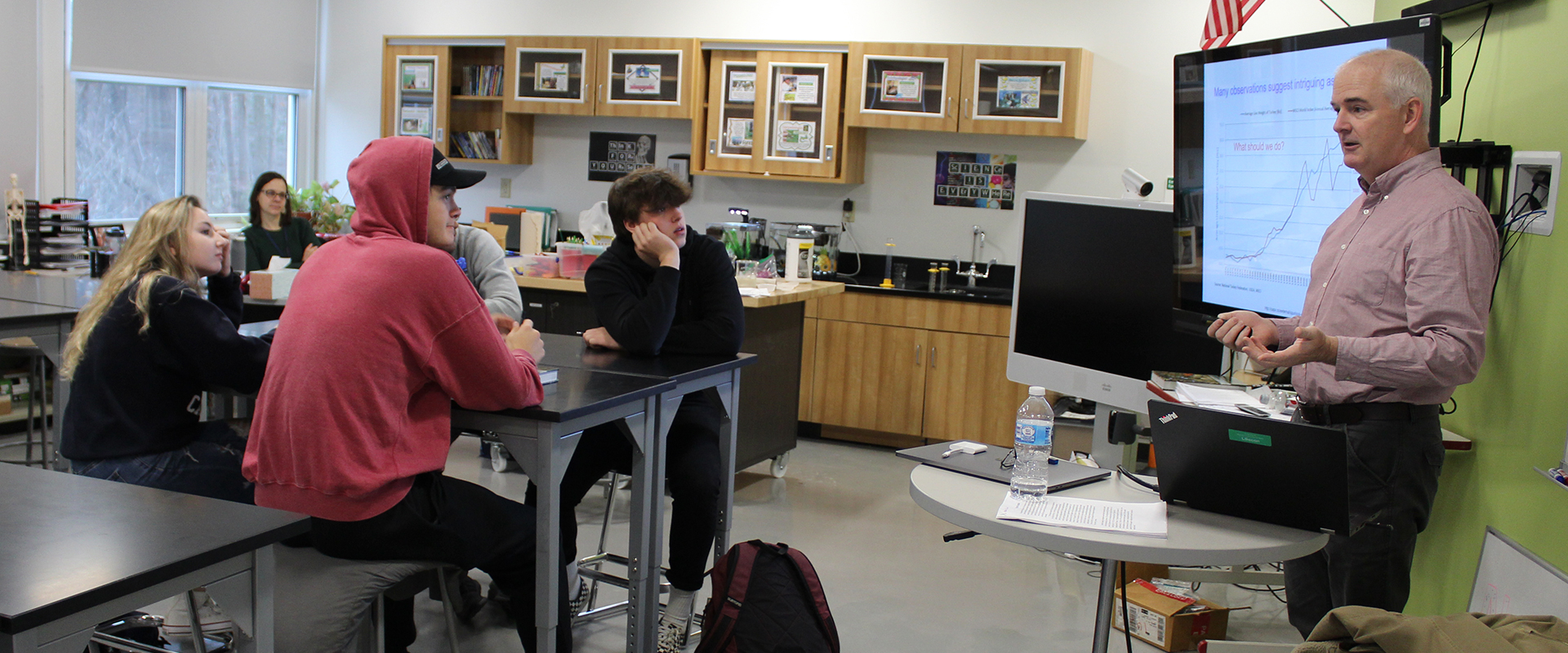
Students in AP Environmental Science learned about research to protect Lake George when Dr. Rick Relyea, an ecology professor at Rensselaer Polytechnic Institute, visited their classroom Friday.
Dr. Relyea is also Director of The Jefferson Project at Lake George, a collaboration between RPI, IBM Research and The FUND for Lake George that studies the impact human activity has on fresh water and how to mitigate those effects.
Teacher Len Bacon invited Dr. Relyea to speak with students after working with him last summer conducting research for The Jefferson Project.
After delving deep into how experiments are conducted, Dr. Relyea shared with students some of the research results his team has conducted on road salt. The use of road salt has grown dramatically, he explained, creating significant impacts to the environment and ecology.
Their research, for example, showed that exposing wood frog tadpoles to road salt led to a 10% increase in male frogs. “When you start taking 10% of females out of a population, it can create problems,” Dr. Relyea explained.
Research on zooplankton showed how exposure to road salt killed most of the small aquatic organisms. Those that survived reproduced but their circadian rhythm, which is critical to their survival, was eliminated.
Alternatives to road salt also had negative environmental impacts, leading to recommendations to use less salt by treating roads with a salt brine before storms and investing in plows that clear snow more effectively.
“We just need to think about using less salt on roads and that’s what the Lake George community is doing. That turns out to be the answer. Lake George reduced the use of salt by 30%,” said Dr. Relyea. “We can apply less, we can apply smarter, we can improve the environment and save money.”
At the end of his presentation, Dr. Relyea answered students’ questions about science, college and other topics. Some students also had their textbooks signed as Dr. Relyea co-wrote them.



